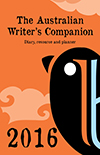

Blog
Welcome to the Busybird blog, where you can find helpful articles, updates, industry news and more. Make sure you stay up to date by signing up to our newsletter below.
What We Hear …
March 3, 2016 We talk to so many prospective authors here at Busybird Publishing.
We talk to so many prospective authors here at Busybird Publishing.
They walk in, wide-eyed, selling the virtues of their writing. And that’s great. They should believe in their work. But there’re some things that we commonly hear that do concern us.
The top three are …
- 3. ‘You don’t get it.’
Like it went right over our heads, or we just didn’t understand, or just aren’t bright enough. Sometimes, it feels like the only reason authors submit for an assessment is so they can be told how great they are.
We look at manuscripts clinically, breaking them down for structure, plot, characters, voice, pacing, content, cohesiveness, and a whole range of criteria (depending on whether the work is fiction or nonfiction). We don’t cite things on a whim, or just to fill out the white space in an assessment and pad out our response. It’s because we genuinely believe something in the piece needs to be considered and reconsidered.
An example is a story we worked on years ago. Four editors looked at it and didn’t get a vital plot point, so I queried it with the author. Indignantly, he defended the story, and said he was sure his readers would get it. I told him if four of us didn’t get it, it’s unlikely a lot of his readers would, too.
You can take pride in your work, but once you’re sending it out into the world, you need to be brutally honest about whether it’s able to stand on its own, because you’re not going to be around to defend it or explain things.
2. ‘It doesn’t need to be edited.’
This is often qualified with:
- ’My whole family read it!’
’My partner read it.’
‘My friend read it, and they’re an English teacher.’
‘My neighbour read it, and they’re an editor.’
‘I’ve gone over it so many times.’
We have been told so often something doesn’t need editing, and yet have been able to open to a random page and find errors.
You will be the worst editor of your own work. Because you’re so familiar with it, you’re reading it as you’re expecting it to sound, rather than picking up visual cues (e.g. a spelling error, a misplaced comma). People who have experience in writing, English, or are just well-read, can only pick up as much as they know. Also, often they’re reading it with a reader’s eye (to be entertained and/or educated), rather than an editor’s eye (to seek out and identify issues).
Even a lot of people professing to be editors are just students who are studying, or writers who know the basics. A friend was looking for an independent editor and trialled three of them with a sample chapter. She then showed me what they’d done. Their work was good, but there were still oversights, or times they’d intruded on the text and rewritten it.
If you’re going to send your work out into the world, it needs to be pristine. The moment an error that would’ve been picked up in editing jumps out at a reader, you’ve lost them.
Find a good editor.
1. ‘It’s going to be a bestseller.’
Your story might be compelling, it might have an amazing plot, mesmerising characters, and be beautifully written; it might be a brilliant self-help/business/life-coaching book full of genius and innovation; it might be a nonfiction book that’s an original and captivating insight into some topic or other and every one of your friends might love it – whatever reasons you believe are going to make your book stand out and will compel readers to flock to it, you have to realise that, ultimately, you’re left with one truth: there’s no guarantee it’s going to be a bestseller.
And do you know why?
Because nobody knows what’s going to be a bestseller. Commercial publishers perform market analyses and yet still pass up books that become spectacular hits elsewhere (e.g. Harry Potter), and spend fortunes on signing books they think will be hits that then flop.
You can study the market, you can (believe you) have a good idea what it should do, but you can’t predict the market. You might as well try predicting what’s the next cat video to go viral on YouTube.
We all want to believe we’ll be special, we’ll be the one, our book will be a hit – sometimes, we’re so certain of these things we feel like we can will them into existence, but the truth is a lot of writers feel this way.
A lot.
Make sure you also keep your perspective.
Audience Assemble!
February 26, 2016 Every piece of writing has an audience. It might be a magazine’s readership, or it might just be for yourself when you vent into your diary or write up a shopping list. Words are communication. And we always choose our words and our messages depending on who is meant to receive that communication.
Every piece of writing has an audience. It might be a magazine’s readership, or it might just be for yourself when you vent into your diary or write up a shopping list. Words are communication. And we always choose our words and our messages depending on who is meant to receive that communication.
Modern marketing philosophy gears us towards writing in broad terms – using simple language and direct but detailed descriptions to attract as large a public audience as possible. Nothing wrong with that – if we write for people, then we naturally have a tendency to want as many people as possible to read our writing. Writers like Thomas Pynchon might be famous for doing the opposite, favouring density and the oblique, but who even noticed aside from critics when Pynchon’s 2013 novel came out?
But even if the trend is to broaden one’s audience as much as possible, that doesn’t mean you can ignore the need to consider who your writing is for. Everything – from the specific language you use, to the themes you include in your writing, to the type of story you’re working with – will add up. So how can you narrow down your intended audience? Here are a few nuggets that may help.
Know what your work is about.
This can be trickier than it sounds. Know why? Because sometimes, if you have a perception on what your work is about, it could be correct for the first draft but totally wrong by the final version.
I’m not just talking about story elements either. Whole new themes can pop up from revision – what was a straightforward story about a family may take on larger concerns about the nature of privacy, or the aftermath of the Australian mining boom. Or puppies.
My point is, sometimes you can have a meticulous plan from first to final draft, and even then you may not have a clear view on everything contained therein. Readers will always have their own individual perspectives, but you can always find patterns. When you get other people to read your work before publication (you are doing that, right?), don’t just drill them on what they like or didn’t like. Quiz them on what they thought the story was about. Even if you think you know the answer, you might be surprised at some responses.
Age is important – no matter what the age.
It generally only gets brought up for children’s and young adult books, but age is something to consider across the board. Yes, you need to be more specific with knowing where to position a book for anyone under the age of 18; your book’s language, themes and level of literacy has to take into account a child’s expected level of comprehension. But writing for ‘adults’ needs some targeting as well, and not just when you’re writing about a character being at a certain age.
Even general concepts like ‘privacy’ or ‘family’ often mean different things to different generations. Knowing those differences can be a big help to connecting with the readers you want as part of your audience.
Genre might be a cold, non-creative system, but you still need it.
There’s a lot of hate for genre and pigeon-holing, especially for novels that try to blend different styles or subvert genre conventions. And justifiably so. Shoving a book into a predetermined category can be misleading.
But the genre system is there to help readers sort out what they might like to read. It’s for the reader’s benefit, not the writer’s. Which makes it a blunt tool, but a useful one nonetheless. Use these descriptors to your advantage. Know what genres you’re servicing. Stepping outside of those predesignated zones might result in you alienating your potential readership – or worse, injure your chances of getting published at all.
If you choose to deliberately break genre conventions, choose wisely. Maybe you can subvert traditional fantasy by making magic only a minor influence on the story, but take out the fantastical elements entirely and you sever any connection a reader has with what they expected to read.
Self-publishing, for all its freedom, magnifies these issues.
That isn’t to say that self-publishing isn’t great for a lot of different reasons. But know what you’re getting into – not just in getting your self-published work set up (a whole topic in itself), but in figuring out how the hell you’re going to sell it.
Traditional publishing, for all its shortcomings, at least has a marketing budget (minor as it may be for anyone other than big-ticket names) and dedicated staff who can figure out the best way to publicise your book or collection. In self-publishing, you have to figure that out yourself.
Self-publishing is still an effective method for reaching an audience. But be prepared to sell it. That means knowing from day one who to sell it to.
You can say stuff it to all of this … but at your own risk.
A lot of the creative spirit comes from breaking conventions – playing with language, playing with character development, playing with one’s perceptions of an event or idea. By extension, the same can be true of the conventions that come with a writer’s audience, and the process of targeting and reaching that audience. You can disregard much or even all of the current wisdom and mechanics to find your own readership, in your own way.
But unless you really, really know what you’re doing, it’s probably going to be a bad idea. And even when you have your own plan, it’s a gambit that could break your book’s chances of success.
It may be frustrating to ‘keep the audience in mind’ when writing – it may feel like a restriction, or that it shouldn’t matter yet. But it always matters. You’re communicating, after all, even if the message hasn’t been delivered yet. Always consider who you’re communicating with.
Beau Hillier | Editor, page seventeen
The Failure of Inspiration
February 18, 2016 So you’re taking a walk, or doing the washing, or lying in bed – well, you’re doing something relatively ordinary.
So you’re taking a walk, or doing the washing, or lying in bed – well, you’re doing something relatively ordinary.
Then it hits.
Inspiration.
You have a brilliant idea for a story – an idea that excites you. The way you’d write the story fleshes out in your imagination – not all of it, but enough that you’re confident you can get started. So you sit at the keyboard, and you pound out a few thousand words. But now, your enthusiasm wanes. You try to keep at it, but within days you have nothing left. The idea can’t have been that good, after all. So you give it up, and wait for a new inspiration, the one that’ll burn all the way through writing.
Does this sound like you?
Are you even proud that you’re a thrall to inspiration, and disregard any writing done whilst not inspired as unworthy? Or ordinary? Or forced?
Thomas Edison is quoted as saying, ‘Genius is one per cent inspiration, ninety-nine per cent perspiration’.
That applies to writing also.
It’s doubtful that inspiration is going to fuel you through writing a short story, let alone a novel. There are going to be flat spots. There are going to be times you want to give it up. There are times you’re going to grow bored. Just think of any emotional, intellectual, or spiritual state which epitomises apathy – if not loathing – and, you know what? At some point, you’re going to feel it.
If you’re banking on always feeling excited by your project, you’re likely to be disappointed, and will probably only end up with a hoard of uncompleted projects, wondering why you can’t just feel passionate about something all the time, and questioning whether this is for you.
The people who finish stuff are the people who stick to it, no matter what. And the reality is as they learn to write through whatever they’re feeling – good, bad, and indifferent – they develop the endurance to always get to where they want to go. That simple. It’s a muscle. Exercise it. Build it. And it’ll start to carry you further. But it’ll remain soft and flabby if all you ever do is give up, and justify that by saying you just couldn’t remain inspired about [INSERT NAME OF LATEST PROJECT].
Inspiration’s great.
We all need it.
But perseverance will see you finish.
Time to Write
January 7, 2016And about now, most writers can be broken into any of the following categories:
- I’m going to start something new
- I’m going to finish that book I’ve been working on for XX years
- It’s time I finally wrote that book I’ve been thinking about all these years.
One of the most difficult things in starting something new (or continuing something you’ve been working on for such a long, long time) is getting to know your world. An unfamiliarity with your universe and your characters is often the reason enthusiasm flags, or writer’s block becomes an unnavigable obstacle. You might know where you’re starting, and where you want to end up, but be unsure how to get there.
It’s like driving somewhere new. You know where you’re beginning. You know where you want to end. But how do you get there? Without a map, you have no idea, and just have to feel your way. When you have a map, the journey becomes clearer. Moreover, you’re provided with alternatives as to the route.
So here’s an exercise you can copy and paste into your word processor, and which you can perform to help you get to know the story you want to write in 2016 …
| Title: |
| Subtitle (if any): |
| Genre: |
| Intended readership: |
| POV: |
| Pitch your story in one or two sentences – this will help dilute what you want to write about: |
| Where is your story set? |
| Who is your protagonist? |
| Briefly describe your protagonist … |
| Who are your other main characters? |
| Who are your supporting characters? |
| What event sets your story in motion? E.g. in The Hobbit, it’s Gandalf and the Dwarves coming to visit Bilbo. In The Philosopher’s Stone, it’s Harry finding out he’s a wizard. |
| What are the obstacles that stand in the way of a resolution? |
| What is the resolution? |
| What is the protagonist’s arc through the story? How are they changed? E.g. Bilbo goes from meek and material, to independent, confident, and worldly. |
 This is an abridged version of an exercise you can find in our Australian Writer’s Companion, which is full of weekly writing quotes, weekly writing prompts, submission opportunities, writing exercises, and writing resources! As you can see, it’s all about writing!
This is an abridged version of an exercise you can find in our Australian Writer’s Companion, which is full of weekly writing quotes, weekly writing prompts, submission opportunities, writing exercises, and writing resources! As you can see, it’s all about writing!
For now, hopefully this exercise will help show you the route you’re going to take, and in getting to know the route you’ll find the impetus to not only write, but to keep on writing in 2016.
Make this the year you finish that book!
Happy writing in 2016.
Bye 2015, Hello 2016!
December 17, 2015 This is the final Busybird blog for the year! Busybird will be closing from 5.00pm Friday, 18th December, and reopening 9.00am, Monday, 4 January 2016.
This is the final Busybird blog for the year! Busybird will be closing from 5.00pm Friday, 18th December, and reopening 9.00am, Monday, 4 January 2016.
2016.
Just like that the sun is setting on 2015, and it’s about now that we get contemplative. How did we fare this year?
At the start of any new year, we’re just about always optimistic. Even if we’re coming off a shocking year (or perhaps especially when we’re coming off a shocking year), we think, This year will be better. Or perhaps we’ve been waiting for a break in our lives, either personally or professionally. Then it’s case of, This year will be the one. Or you might have specific resolutions to quit smoking (always a popular one), to get healthier, to find love, etc., that are meant to start with the new year.
But the reality is nobody really knows how things will turn out. You can plan, you can think positively and/or constructively, you can try to action it into reality, or you can just wish it upon a falling star, but who knows what life has in store for you?
Health’s fragile, the world grows ever-more violent, and – perhaps most insidiously (although some may disagree) – our lives have become so frenetic, that we don’t always appreciate what’s right in front of us, instead focusing on what we don’t have, rather than enjoying and cherishing what we do have.
So as 2015 comes to a close, it’s great to look forward. Plan for the future. Aim high. Lift those aspirations and strive for greatness – whatever your particular greatness might be. Don’t hold back. Keep life in perspective, stay realistic, but nurture those dreams, because while some may consider them a whimsy or a luxury, dreams are our lifeblood. Without them, what is life, but just something we navigate?
Most of all, though, and arguably most important, don’t be afraid to slow down. Your life might be hectic. That might be all you know, and you might claim you just don’t know how to stop. Maybe that’s true. But that sort of frenzy is unhealthy – not only for ourselves (physically, intellectually, emotionally, and spiritually), but in regards to how it impacts every facet of our lives, whether it’s our relationships, our work, or our outlook.
Learn to pause. Force yourself to take a respite every now and then. Insist it of yourself.
And remember what matters most.
If you search deep within yourself, you’ll know what that is.
From everybody at Busybird Publishing, we wish you a Merry Christmas, and a Happy, Healthy, and Prosperous New Year.


